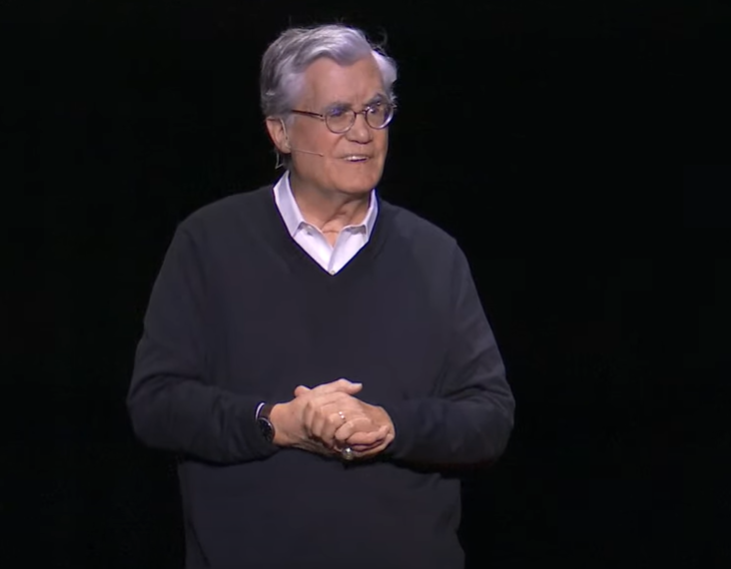By STEVE DUNFEY, InDepthNH.org
Mental illness is becoming a focused topic on par with other illnesses. Paving the way for that is John T. Broderick, Jr.
Here in New Hampshire and Vermont, Broderick has spent the past seven years speaking hundreds of times to school audiences about mental illness. More specifically, to his experience within his own family: his son Christian suffered from anxiety and depression.
Broderick is a prominent citizen in New Hampshire. An attorney, he is a graduate of the College of the Holy Cross and the University of Virginia School of Law. He has experience in politics, having served as NH Co-chair of the Clinton for President campaign in 1992.
He spent more than two decades as a civil trial lawyer and then served on the NH Supreme Court where he served for seven years as Chief Justice. Broderick then served as Dean of the University of New Hampshire School of Law. He has also served as an adjunct professor at Dartmouth College’s Tuck School of Business. Broderick is co-chair of the Campaign to Change Direction New Hampshire. According to the Valley News, this is an organization “dedicated to changing cultural perceptions of mental health.”
Broderick is presently Senior Director of External Affairs for Dartmouth Health in Lebanon, N.H. This position allows him the ability to speak to thousands of interested students. He has also written a book about his experience with mental illness titled “Backroads and Highways: My Journey to Discovery on Mental Health.” He presently states that his work as a mental health activist “is the most important work of my life.”
There is still stigma associated with mental illness and Broderick is trying to eliminate that. He has traveled thousands of miles in his Jeep to reach out to young people on the topic of mental illness. He feels that talking about mental illness will bring it out of the shadows of inattention.
Broderick is a great public speaker and that adds to his important message. One can experience his message on YouTube as he gives a speech at Mascoma Valley Regional High School in Canaan, N.H. Broderick is introduced by New Hampshire Commissioner of Education Frank Edelblut. It represents in detail his family’s experience with his son’s mental illness. Broderick spent several days in intensive care after his son attacked him with a guitar. This was his awakening to his son’s mental illness.
“The kids that I talk to, I have learned, open up. Kids are listening. They share with me that it is okay to not be okay. The kids have really impacted me. That is why I am doing what I am doing. People are coming forward. People who at one time were ashamed. It’s ridiculous the way we treat mental health.”
Broderick wrote his book and gives Dartmouth Health credit for printing it. “One goal of the book is to reach parents whose kids are subjected to high pressure. Alot of kids aren’t doing fine. It’s part of growing up. We have to de-mythologize. What are we doing about it? Today you have cancers and other health problems that are recognized. We are lacking when it comes to dealing with mental health.”
Regarding his son, Broderick prefers privacy. But he did say, “I am telling a family story. I did not see it coming. We made mistakes and I failed him. Today he is doing well and is married. This experience has opened my eyes. Mistakes can be profoundly unfair. No one asks for the problem. So why be cruel to people?”
On the national level, the equivalent to Broderick would be Patrick J. Kennedy, son of the late Senator Ted Kennedy. Having dealt with addiction and bipolar illness, Kennedy also wrote a book about his experience called “A Common Struggle: A Personal Journey Through The Past And Future of Mental Illness And Addiction.” He has “founded the Kennedy Forum which unites the community of mental health, and co-founded One Mind, a global leader in open science collaboration.”
Both Broderick and Kennedy are fighting the same battle to take the stigma out of dealing with mental illness. Broderick notes that more research is needed as he says, “The Center for Disease Control statistics are alarming.”
As Broderick says at the end of his talks: “This is the most rewarding work of my life. But I can’t do this by myself.”





